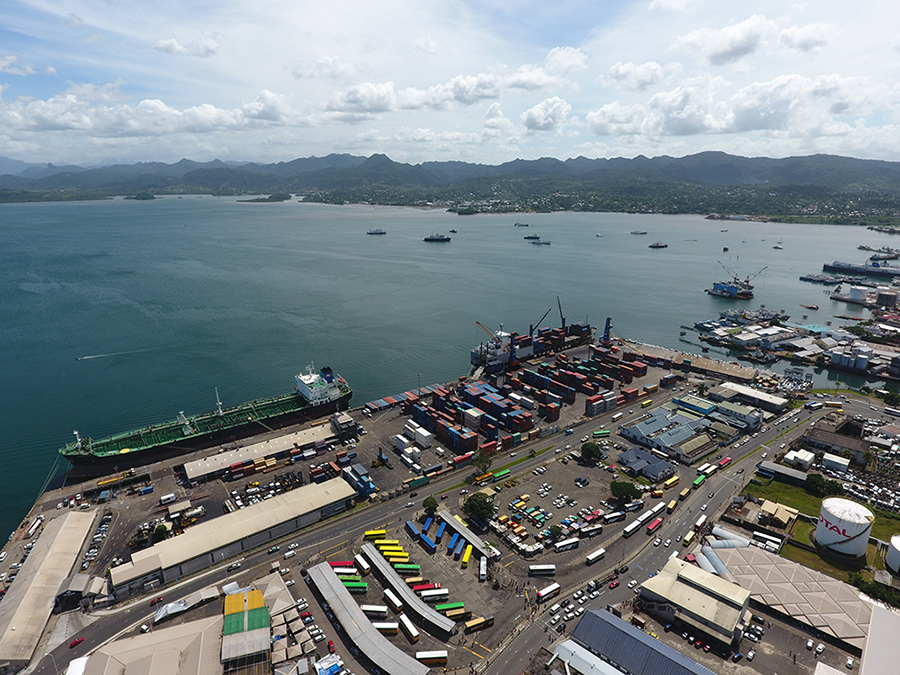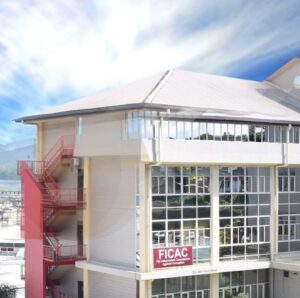In the upcoming 2023-2024 Budget scheduled to be released on Friday, June 30, the Fijian Government aims to achieve an overall budget deficit of just over 4% of GDP.
The government intends to increase spending, particularly in critical areas like health and infrastructure, with projected revenue of about $3.7 billion and capital expenditure of over $4 billion.
The deficit stems from the government’s decision to maintain the zero rating on 21 basic food items, contrary to World Bank and Fiscal Review Committee recommendations, looking at other avenues to raise revenue to reduce debt and still have funds to spend on critical areas such as health and infrastructure.
“We have no choice in that because costs everywhere are rising, and we cannot ignore this,” Professor Biman said of the budget deficit and the alternative revenue measures they have had to make. “We will be significantly increasing our investment in health and in other targeted spending which I will talk about in a moment.
“We are targeting an overall budget deficit of just over 4% of GDP. This is higher than we wanted but at this point, with the many different pressing priorities we have, there is little choice. We are fortunate that, mainly on the back of the tourism recovery, economic growth of about 8% is expected for the 2023 calendar year. That level of growth gives us a little bit more short-term room to spend. The key is to keep the Government deficit below the rate of economic growth. If we can do that, then logically the debt to GDP ratio starts to fall.”
World Bank And Fiscal Review Recommendations
The World Bank and the Fiscal Review Committee recommended tax increases, such as raising the VAT rate to 12.5% or 15% across the board and removing the zero rating on essential items. These measures could generate significant additional revenue, estimated at $370 million to $630 million. The proposal suggested using a portion of these earnings to compensate “welfare recipients and low-income households.”
Professor Biman said they considered the recommendation and were mindful of criticisms as well particularly on the impact of removing the zero rating on the cost of living for ordinary people.
The government he said also considered the suggestion to keep the zero-rating and focus on taxing companies and wealthy individuals more which he said was unworkable because the government has limited options outside of increasing VAT due to the low number of individuals paying personal income tax and the challenges associated with increasing taxes on the rich.
Cost of Not Taking Up World Bank and Fiscal Review Recommendations
Maintaining the zero rating in place for essential items Professor Biman says spells significant revenue loss.
Maintaining the zero-rating on essential items would reduce additional revenue by about $185 million at a 12.5% VAT rate or $220 million at a 15% rate.
Measure Govt Has Opted For
Having considered all options, Professor Biman the government has decided to increase the current 9% VAT rate, with the exact amount to be outlined in the budget address.
Two VAT rates will be implemented, keeping the zero rating for essential items while providing increased support to people in the social welfare system to mitigate the impact of the increase.
“We know that this is not necessarily the most efficient way to collect tax. We have been told by both the World Bank report and the Fiscal Review Committee report that zero-rating of essential items benefits the rich more than it benefits the poor. We understand that logic. However, the Government also understands the concerns of ordinary people about the price of food and essential items. We understand that if we unified the VAT rate, even with additional targeted assistance, there would be severe impacts on thousands of our people. And this is not the time to do this. We may look at this measure in the future, but we believe that we must first grow the economy and try to improve incomes overall before we can take this step.”
In addition, the government plans to raise the main corporate tax rate, increase the departure tax, and implement increases in customs and excise duties.
“We will be raising the main corporate tax rate. This will collect an additional $70 million a year. Many people will be surprised at how low that number is. But that is all we will get from that increase. We will be phasing in increases in departure tax between now and 2025 and in consultation with the tourism industry. This will raise an additional $70 million when it is fully implemented, but full implementation is still more than a year away. Increases in customs and excise duty, including on alcohol, will generate about another $100 million.”
These measures combined Professor Biman says are anticipated to raise at least $500 million in additional revenue, enabling the government “to invest in critical infrastructure and reduce the debt-to-GDP ratio.”









